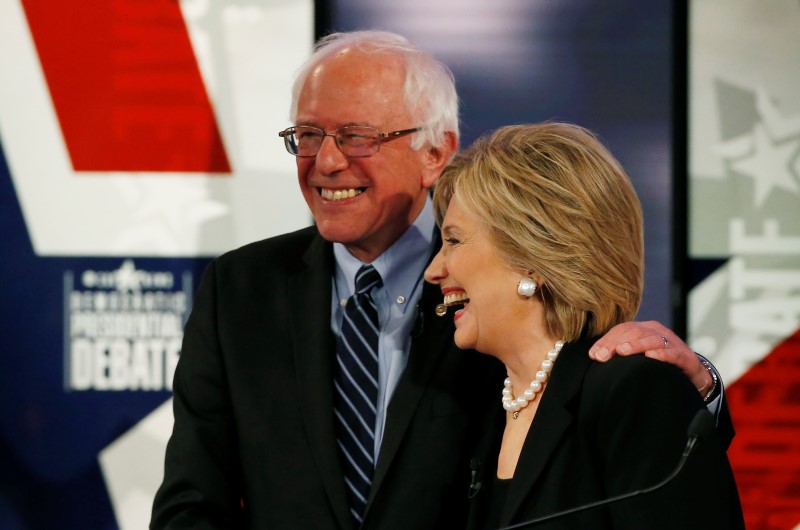By Steve Holland and Erin McPike
WASHINGTON (Reuters) - Republican presidential candidate Jeb Bush broke with rivals on Tuesday by saying he would support some Syrian refugees coming into the United States but stressed the screening must be tough to ensure no Islamic State militants enter the country.
The deaths of 129 people in Paris on Friday in attacks for which Islamic State claimed responsibility have given both Democratic and Republican candidates an opening to debate what steps to take against militants whose reach into Europe from Syria and Iraq is a direct challenge to Western leaders.
But the Syrian refugee crisis is dividing American politicians, given the choice between yielding to fears of importing terrorists or honoring the United States' traditional welcoming role. Candidates have been debating all year what to do about 11 million illegal immigrants already in the country.
Some Republican candidates have said they are wary of accepting Syrian refugees after the attacks and two dozen state governors, mostly Republicans, have vowed not to accept any.
Governors who oppose Obama's refugee plan are concerned some of them might launch attacks against Americans.
Bush, however, outlined a scenario in which he would accept some of those fleeing Syria's civil war.
The former Florida governor told a questioner on a conference call with business leaders his preference would be to create safe zones in the region, but added:
"You're not going to solve it by bringing people in. My heart goes out to the refugees and I do think we have a noble tradition of supporting refugees. But the screening process needs to be ... difficult and we err on the side of caution."
Bush reiterated his preference for accepting refugees who are Christian, after Obama criticized him.
"I don't think it's discriminatory to suggest that we should be duty bound to provide support for Christians who only because of their faith are being obliterated in the region," he said.
Ohio Governor John Kasich, another Republican candidate, voiced opposition to accepting refugees following the attacks, having expressed sympathy for their plight in September.
"Until we get a handle on where we are, we need to stop. And once we have a rational program and we can determine who it is that's coming, then it's another story," he said in a speech at the National Press Club in Washington.
Republican candidate Ted Cruz, a U.S. senator from Texas, sponsored Facebook (O:FB) ads opposing Syrian refugees that read, in part, "Tell President Obama that Syrian refugees infiltrated by ISIS don't belong in America."
Democratic presidential candidates Hillary Clinton and Bernie Sanders said they were willing to accept refugees. Clinton, a former secretary of state, told a rally in Dallas, Texas, that refugees should "of course" be meticulously screened.
"But we can't act as though we're shutting the doors to people in need without undermining who we are as Americans and the values we have stood for," Clinton said.
Sanders, a democratic socialist and senator from Vermont, said: "We will not succumb to Islamophobia. We will not turn our backs on the refugees who are fleeing Syria and Afghanistan. We will do what we do best and that is be Americans - fighting racism, fighting xenophobia, fighting fear."

A third Democratic candidate, former Maryland Governor Martin O'Malley, has called for expanding to 65,000 the number of Syrian refugees allowed in.